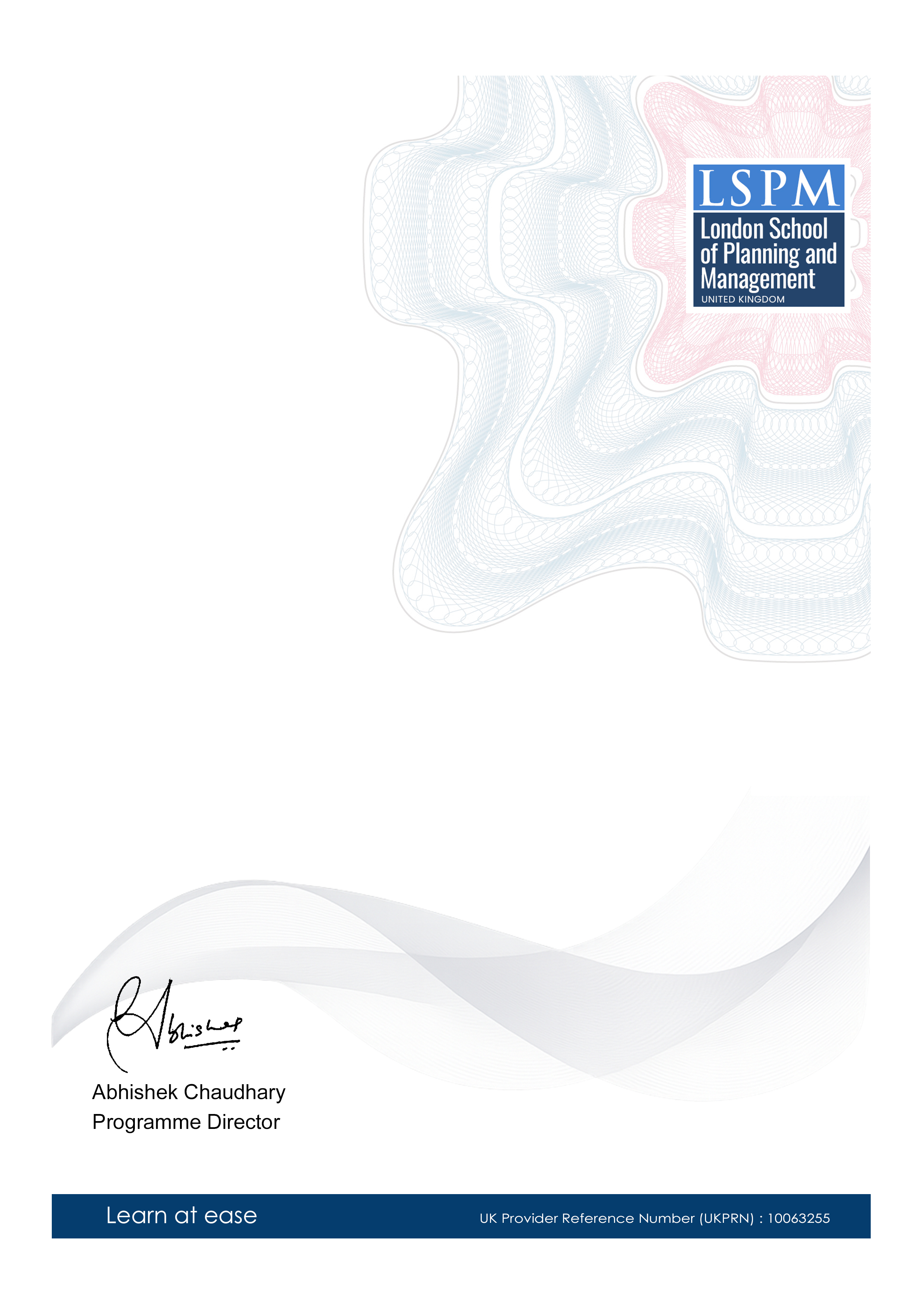Career Advancement Programme in Urban Economic Resilience
-- viewing nowThe Career Advancement Programme in Urban Economic Resilience certificate course is a comprehensive program designed to equip learners with essential skills for career advancement in urban economic development. This course emphasizes the importance of building resilient cities that can withstand economic shocks and stresses, thus creating sustainable and inclusive communities.
2,613+
Students enrolled
GBP £ 149
GBP £ 215
Save 44% with our special offer
About this course
100% online
Learn from anywhere
Shareable certificate
Add to your LinkedIn profile
2 months to complete
at 2-3 hours a week
Start anytime
No waiting period
Course details
• Urban Economic Development: Understanding the economic forces that drive urban areas, including job creation, innovation, and investment. This unit will provide a solid foundation for analyzing and improving urban economic resilience. • Disaster Preparedness and Response: Preparing for and responding to natural and man-made disasters is critical to maintaining economic stability in urban areas. This unit will cover best practices for disaster planning and response, with a focus on minimizing economic disruption. • Climate Change Mitigation and Adaptation: Climate change poses significant risks to urban economies, from sea-level rise to extreme weather events. This unit will explore strategies for mitigating the impact of climate change and adapting to its effects. • Public-Private Partnerships: Collaboration between the public and private sectors is essential for building resilient urban economies. This unit will cover the benefits and challenges of public-private partnerships and provide examples of successful partnerships. • Workforce Development: A skilled and educated workforce is critical to the success of any urban economy. This unit will explore strategies for developing a strong workforce, including training programs, education initiatives, and job placement services. • Infrastructure Investment: Infrastructure investments, such as transportation and utilities, can have a significant impact on urban economic resilience. This unit will cover the importance of infrastructure investment and provide examples of successful projects. • Innovation and Entrepreneurship: Encouraging innovation and entrepreneurship can help urban areas diversify their economies and build resilience. This unit will cover best practices for fostering a culture of innovation and supporting new businesses. • Community Engagement: Engaging community members in the planning and decision-making process is essential for building resilient urban economies. This unit will cover strategies for effective community engagement, including public meetings, online engagement tools, and outreach to underrepresented groups. • Data Analysis and Metrics: Measuring and tracking economic indicators is critical for understanding the health of an urban economy and identifying areas for improvement. This unit will cover best practices for data analysis and the development of meaningful metrics for measuring economic resilience.
Career path
Entry requirements
- Basic understanding of the subject matter
- Proficiency in English language
- Computer and internet access
- Basic computer skills
- Dedication to complete the course
No prior formal qualifications required. Course designed for accessibility.
Course status
This course provides practical knowledge and skills for professional development. It is:
- Not accredited by a recognized body
- Not regulated by an authorized institution
- Complementary to formal qualifications
You'll receive a certificate of completion upon successfully finishing the course.
Why people choose us for their career
Loading reviews...
Frequently Asked Questions
Course fee
- 3-4 hours per week
- Early certificate delivery
- Open enrollment - start anytime
- 2-3 hours per week
- Regular certificate delivery
- Open enrollment - start anytime
- Full course access
- Digital certificate
- Course materials
Get course information
Earn a career certificate

